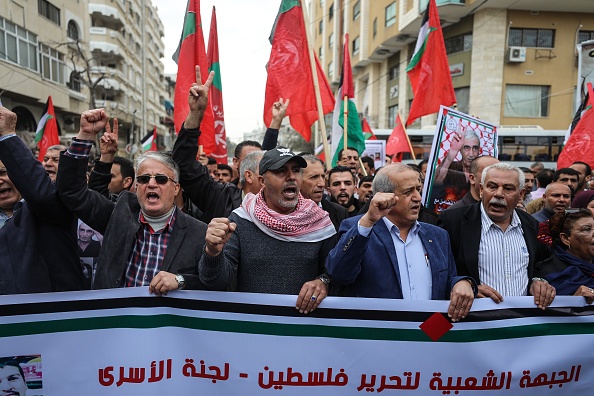The Middle East Institute (MEI) is pleased to host a panel discussion to examine the implications of the Palestinian Authority’s recent power shift. On April 14, Mohammed Shtayyeh took office as Prime Minister, a position held by Rami Hamdallah since 2014. Shtayyeh’s appointment comes during a turbulent time in Palestine, amid protests over a new social security law and escalating confrontation with Israeli occupying forces. Unlike his politically-independent predecessor, Shtayyeh is affiliated with Fatah, President Mahmoud Abbas’s party, and Hamas has announced that it will not recognize his authority, saying he was appointed without national consensus.
How might this change in leadership affect Palestine's political environment? Will Shtayyeh further sideline Hamas in negotiations with the Israeli government? What prospects are there to promote human rights and the rule of law amid heightening tensions between Palestine and Israel?
This panel is an event in the George and Rhonda Salem Family Foundation Lecture Series.
Speaker biographies:
Ahmed Abu Artema (via recorded message)
Palestinian writer and activist
Ahmed Abu Artema is the Palestinian writer, refugee, nonviolent advocate, and visionary who inspired the Great March of Return.
Brian Barber
International security program fellow, New America; Senior fellow, Institute for Palestine Studies
Brian K. Barber is a fellow in New America's international security program and a senior fellow at the Institute for Palestine Studies. He is working on a book narrating the lives of six men and their families from the Gaza Strip who he has interviewed regularly for the past 20 years since they emerged as youth from the first Palestinian intifada in 1993. During his upcoming trip, Barber will resume his blog “Glimpses of Gaza.” Barber is professor of child and family studies and the founding director of the Center for the Study of Youth and Political Conflict at the University of Tennessee. Since joining New America, Barber’s work has appeared in academic journals, including: The Lancet, Journal of Traumatic Stress, Emerging Trends in the Social and Behavioral Sciences, Social Science & Medicine, and Human Development.
Tamara Kharroub
Assistant executive director and senior Middle East fellow, Arab Center Washington DC
Tamara Kharroub is the assistant executive director and senior Middle East fellow at Arab Center Washington DC (ACW). Her research work focuses on democracy and human rights in the Arab world. She publishes research and policy analysis papers and editorials exploring issues of democratization and transitions, U.S. foreign policy in the Middle East, the Palestinian-Israeli conflict, identity politics, and the role of media and communication technology in the political process. Prior to joining ACW, Kharroub was associate instructor at Indiana University and directed human rights and democracy programs and communications campaigns in the Middle East. She holds a PhD from Indiana University Bloomington and an MA from the University of Westminster, and is the recipient of several awards and fellowships including Fulbright.
Grace Wermenbol
Non-resident scholar, MEI
Grace Wermenbol specializes in the contemporary geopolitics of the broad Middle East and North Africa region. She previously served as a lecturer on the Israeli-Palestinian conflict at the University of Oxford and held a research position at Oxford’s department of politics and international relations, where she examined Egyptian foreign policy under President Anwar el-Sadat. Wermenbol has contributed to – and provided commentary for – several international outlets, including the BBC, Al Bawaba, Haaretz, and The Jerusalem Post, in addition to several Washington-based think tanks and institutes. Wermenbol received her PhD and master’s from the University of Oxford, St Antony’s College, where she was based at the Oriental Institute and Middle East Centre. Drawing on extensive fieldwork in Israel and the Occupied Palestinian Territories and interviews with senior government officials, her PhD examined the perpetuation of conflict narratives in the post-Oslo era. Her thesis is currently being converted into a book with Cambridge University Press.
Ambassador Gerald Feierstein, moderator
Senior vice president, MEI
Amb. (ret.) Gerald Feierstein is senior vice president at MEI. He retired from the U.S. Foreign Service in May 2016 after a 41-year career with the personal rank of Career Minister. As a diplomat he served in nine overseas postings, including three tours of duty in Pakistan, as well as assignments in Saudi Arabia, Oman, Lebanon, Jerusalem, and Tunisia. In 2010, President Obama appointed Amb. Feierstein U.S. Ambassador to Yemen, where he served until 2013. From 2013 until his retirement, Amb. Feierstein was Principal Deputy Assistant Secretary of State for Near Eastern Affairs.












